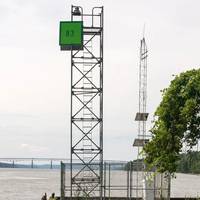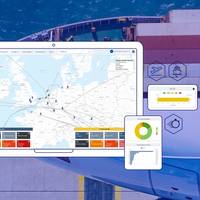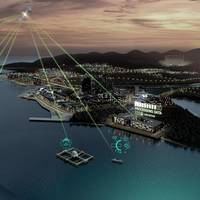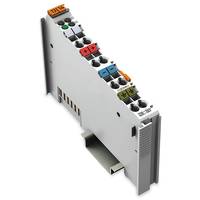NOAA Guides Easier Hudson River Navigation

Real-time data on coastal conditions will support improved maritime navigation in New York.Navigating New York waterways just got a bit easier. NOAA and the New York State Department of Environmental Conservation announced the establishment of the Hudson River Estuary Physical Oceanographic Real-time System (PORTS). The system delivers real-time oceanographic and meteorological observations that can improve maritime safety and inform coastal resource management in the region.
New Functions for BlueBox Systems Freight Tracker

BlueBox Systems, developers of intelligent freight tracking solutions, has further developed its BlueBoxCargo tracking platform.The new features include the tracking of CO₂ emissions for sea freight, simplified shipment registration for smaller customers and extended analysis options that further optimize decision-making for customers. This includes, for example, a new routing function for air freight customers. The enhancements give customers access to even more precise and comprehensive…
Digital Developments Continue Apace in the Workboat Space

Sustainable, energy-efficient working practices and environmental regulatory compliance are among the hot-button topics driving the spread of maritime digitalization.The benefits of a digital strategy for companies working within the maritime industry soon stack up. In addition to providing operational/logistical streamlining, data-based insights, a competitive edge and a reputational leg-up, connecting operational systems and consolidating interfaces also drives the levels of…
WAGO Updates Marine Filter Modules

WAGO has updated its filter modules to include built-in ground fault diagnostics. The 750-624/020-002 and 750-626/020-002 are able to monitor both the +24 VDC and 0 VDC supply connections for impedance to ground.The filter modules are perfect for marine applications. Engineers will design in a ground fault test device to detect error resistance to Earth in marine applications. The built-in ground fault detection means there is no need for an external device for ground fault detection after a 24 VDC power supply.These multi-purpose modules will help reduce system costs and commissioning time.
VDRs for Inland Vessels? Does It Make Sense?
It just might. And, you’ve got options.The Voyage Data Recorder (VDR) carriage requirements apply to all passenger ships regardless of gross tons or year of build, and to all cargo ships 3000 gross tons or larger built after 2002. A simplified VDR (S-VDR) is allowed on older ships built before 2002. The performance standard was updated in 2014. That said; a full type-approved VDR is not a requirement for inland vessels under 3,000 GT. Nevertheless, a good case to be made for installing a (less costly) data recording device on such vessels, ideally with remote access and reporting as part of an Internet of Things (IoT) solution to monitor the vessel and its installed equipment.












